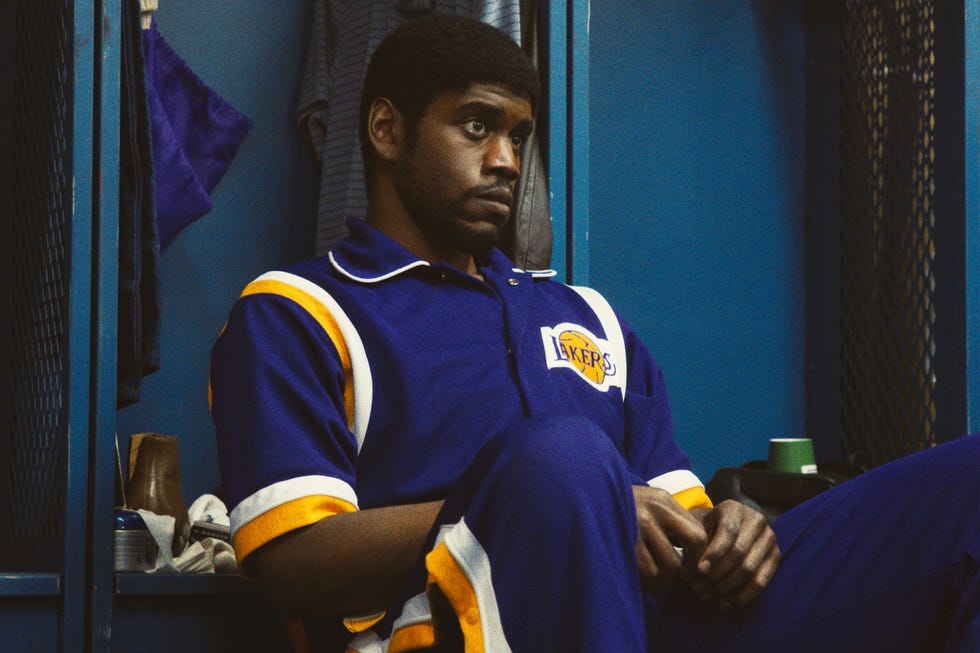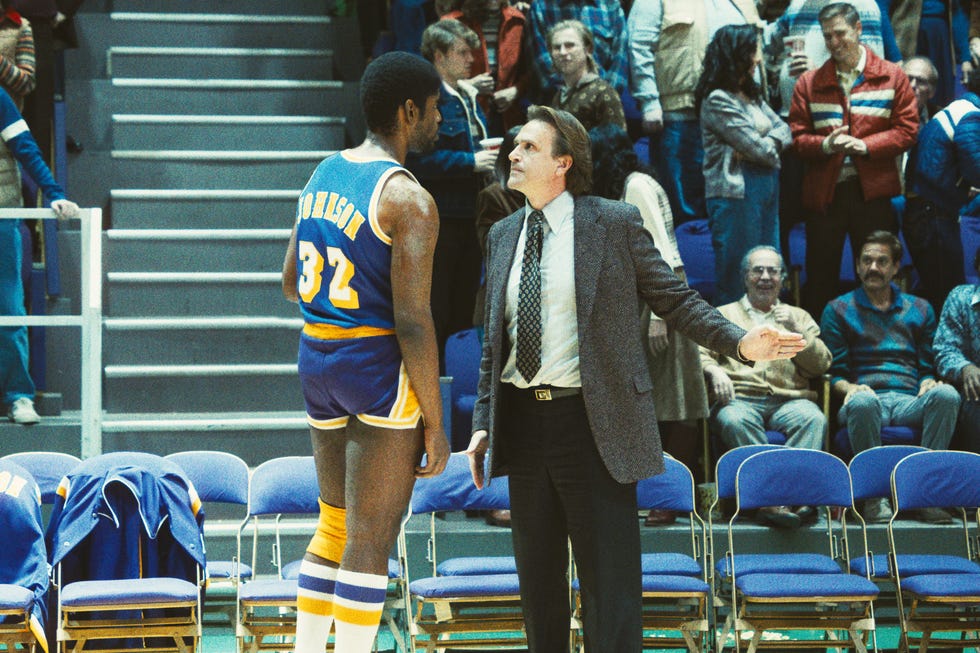For the first 13 episodes of Winning Time‘s run, the Los Angeles Lakers we’ve seen so far have been in the embryonic stage of the dynasty that defined the ’80s. In its latest episode, the Lakers finally become Magic Johnson‘s team. And all he had to do was quit on them.
For those born before CDs ruled the Earth and basketball nerds, every Winning Time episode has been a prelude to these scrappy Lakers transforming into the hyperspeed, world-beating Showtime Lakers. The theatrical fastbreaks and Johnson’s Spalding sorcery to zip a pass to a teammate without looking that defined the Lakers’ ’80s dynasty has only been seen in spurts over the first two seasons. Season 2 introduced its biggest impediment: coach Paul Westhead’s (Jason Segel) “system.”
The pecking order of the Lakers has been fractured under the weight of Westhead’s ego and Johnson’s impatience. Westhead won a title in Season 1 with Pat Riely (Adrien Brody) while the two assumed the coaching responsibilities left by former coach Jack McKinney (Tracy Letts), but it never felt like it was his team. He was half of the head coaching core of a team molded by Jerry Buss (John C. Reilly), and McKinney was buoyed to championship heights by the rising stardom of rookie Magic Johnson. That’s why most of his contributions to Season 2 so far have been centered around him imprinting his identity onto this team. He shot down a David Thompson trade early in the season because he wasn’t his choice. He’s implemented a traditionalist approach to basketball, including slowing the offense down to Kareem Abdul-Jabar’s (Solomon Hughes) speed and implementing a stagnantly textbook style of play known as “The System.” Oh, and he’s gone to war with the star of the team.
More From Men’s Health

On the other hand, it hasn’t sat well with Westhead that Johnson has been asserting his value by any means this season. He challenged Abdul-Jabar to match the Showtime speed, returned prematurely from an injury to not lose his place in the team, and leveraged his importance to the team to secure a 25-year contract for $25 million from Dr. Buss. In the latest episode, Johnson and Westhead’s acrimony hit a breaking point after Westhead sent Johnson back to the locker room during a game for not adhering to his demand to join the huddle. In a cramped locker room with only enough light for them to see each other and not enough space to not be face to face with one another, Westhead laid down the pseudo-dictatorial hierarchy of the team, telling Johnson he and he alone decides whether Johnson plays or sits.
Westhead let Johnson know on the Lakers; he has no cards to play to trump his coaching authority. Then, Magic dropped his trump card, which almost changed the course of basketball forever.
Did Magic Johnson Ask To Be Traded From The Los Angeles Lakers?
At the contentious end of the episode, Johnson told a gaggle of reporters he wasn’t happy playing hard but not having fun. At this moment, he effectively told the world he was planning to tell Dr. Buss he wanted to be traded. In real life, Johnson’s impromptu trade request happened on November 18, 1981, after a game against the Utah Jazz. While Winning Time‘s portrayal is identical, there were small nuances that packed a punch.
On the show, he only says he has to go as a result of him not having fun playing. His real-life declarations were coated with a bit more frustrated desperation. “I can’t play here anymore. I want to leave. I want to be traded. I can’t deal with it no more. I’ve got to go in and ask [Buss] to trade me.” He revealed he hadn’t been happy all season and said Westhead was why he wanted to leave the Lakers.
At that point in his career, he had only delivered one championship to a team trailing in championships 7 to 13 to Lakers’ rival Boston Celtics. What happened the very next day is arguably the most important moment in the ’80s Lakers dynasty and likely the centerpiece of an upcoming episode that completely changes the series forever.
Senior Editor
Keith Nelson is a writer by fate and journalist by passion, who has connected dots to form the bigger picture for Men’s Health, Vibe Magazine, LEVEL MAG, REVOLT TV, Complex, Grammys.com, Red Bull, Okayplayer, and Mic, to name a few.




Comments are closed.